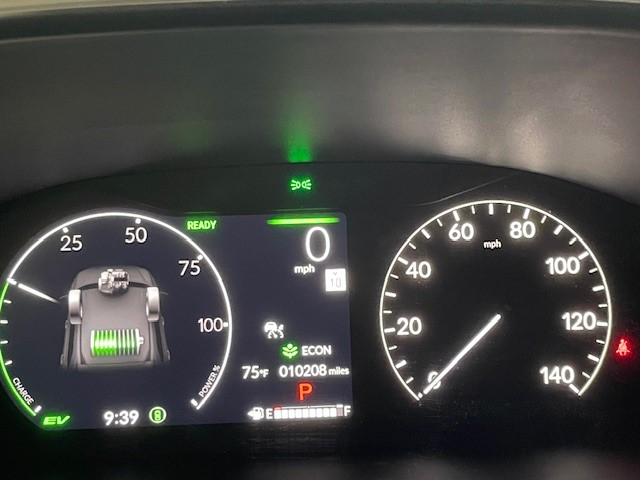How Your Annual Mileage Influences Your Auto Insurance Premium

What if the real reason for your high insurance premium was right in front of you all along?
Smart drivers protect their ride with reliable car insurance. Most drivers do something else too: They wonder what is making their monthly premiums so expensive. As the numbers on the odometer rise ever higher, it is easy to ponder whether this is having a direct impact on how much you pay.
Does mileage affect car insurance? In truth, this is a complex question, but knowing the answer can help you save money. When you are ready to start saving, keep reading to learn all about how auto insurance annual mileage affects your rates and what you can do to lower them.
Drive Smart, Save More: Understanding Mileage’s Impact on Insurance
Does mileage affect car insurance? The short answer to this question is “yes.” When setting prices, carriers always consider how likely someone is to file a claim. Therefore, they will look at high miles as evidence that you are on the road more often and, therefore, likelier to get into an accident and file a claim.
Therefore, if you have been asking, “Does driving more make my car insurance go up?” you now know the answer. Keep in mind this is one of many factors your carrier considers when setting the price. And the exact impact that high mileage has on car insurance premiums may change based on numerous factors, including where you live, what you drive, and your carrier.
The Mileage-Insurance Connection: Key Factors to Know
As a general rule, the effect of annual mileage on car insurance is simple to understand: the more you drive, the more you pay. This is because the carrier considers you far likelier to get into a wreck and have to file a claim the longer you are on the road. Fortunately, this works in advance, and lowering how much you drive each year can help lower your premium.
Calculating Costs: Annual Mileage as a Price Factor
Does driving more make my car insurance go up? It does, but the effect can be difficult to calculate. That is because your car insurance premiums are based on multiple factors. With that being said, you can typically estimate the approximate annual mileage effect on car insurance rates with your own monthly bill.
For example, low-mile drivers receive the best rates. But someone who drives 10,000 miles per year is likely to pay about 7% more than someone who drives 7,500. And someone who drives 12,000 miles per year will pay 4% more than the person who drives 10,000.

Breaking Down Breakpoints: Insurance Mileage Brackets Explained
The effect of annual miles on car insurance is determined by your carrier and how they group drivers into three categories: low miles (7,500 or less per year), average miles (7,501-15,000 per year), and high miles (over 15,000 per year). This information may be collected through informal annual mile requests from your carrier or through special telematics equipment that reports exact miles driven to the carrier.
Your bracket determines what kind of policy you receive from the carrier. For example, someone in the highest bracket will receive high-mileage insurance. Someone in the lowest bracket, which often includes at-home workers and others who do not travel very often, may qualify for low-mileage insurance.
Pro Tips for Mileage Management and Insurance Reduction
Knowing the relationship between auto insurance and annual miles likely leaves you with a simple question: How can you reduce your annual miles? Fortunately, there are a few easy tips you can follow to make that high-mileage insurance premium a thing of the past.
The best thing you can do to lower miles is to get a work-from-home job. After all, commuting can easily add 5,000 miles or more to your car. Beyond that, consider taking public transportation, carpooling with coworkers, or simply hosting more gatherings at your house. All these ideas reduce how much you drive and, therefore, how much you have to pay.
How Much Could You Save With Reduced Mileage?
It is difficult to calculate exactly how much you could save on auto insurance after lowering annual miles, which is why you should talk to your insurer. On the most extreme end, someone driving 20,000 annual miles could lower their bill by 25% if they dropped down to 12,000, and someone driving 12,000 miles per year could lower their bill by 4% if they dropped down to 10,000 miles.
Crunched Numbers: Average Mileage Discounts Revealed
It is possible to get a special low-mileage discount for driving fewer miles throughout the year. Beyond this, you can drive your premium down further by bundling services, going paperless, paying in full, or improving your credit (learn how your credit score impacts your car insurance rates). Remember, though, that the single best way to save may be switching to a new carrier.
Play by the Rules: State-Specific Mileage Regulations
Your carrier will have any number of regulations when it comes to reporting miles. However, they are beholden to state laws regarding miles. That means if you live in certain states, you will have to abide by certain regulations no matter who your carrier is.
Navigating California’s Mileage Reporting Laws
The best example of this is California, which requires drivers to submit annual mile estimation forms every three years. Failure to fill out this paperwork may cause an increase in your premium.
Miles Matter – Get a Customized Auto Insurance Rate
Now you know the answer to questions like “Does mileage affect car insurance?” You also know how to reduce miles, find discounts, and generally drive your premium down. But do you know where you can find the best prices and service when you need them the most?
At InsureOne, we specialize in protecting automobiles just like yours. When you are ready to get the best prices no matter how much you drive, come get a quote online. Of course, you can also pick up the phone and give us a quick call at 800-836-2240. Finally, feel free to come find an InsureOne office near you.
FAQs: Mile-High Questions About Auto Insurance
Does mileage affect car insurance? Yes, but this topic is more complex than “yes” or “no” answers. Below, you will find more details on drivers’ most frequently asked questions.
Does Low Annual Mileage Qualify Me for Better Rates?
Yes, though you may need to provide your carrier with proof that you have lowered your annual miles driven.
Can Overstated Mileage Affect My Insurance Validity?
It may or may not invalidate your policy. This can vary from carrier to carrier, so be sure to ask your own agent how this will impact you.
What Happens If My Estimated Mileage Does Not Match Actual Usage?
If you catch the error in time, you should be able to update your carrier as to the correct number of miles. However, consider writing down your mileage at the beginning and end of each year so that you can provide the most accurate answer.
Are There Easy Ways to Prove My Car’s Mileage to Insurers?
The easiest way to prove mileage is to let the carrier install telematics in your vehicle. This will automatically record miles driven, but keep in mind it will also report other driving behaviors to your insurer.
Can I Change My Mileage Estimation During the Policy Period?
You can typically update your carrier with a more accurate number of miles estimate in order to get the most accurate premium.
Will Ridesharing or Frequent Long Trips Significantly Increase My Premiums?
Frequently taking long trips will increase your car policy costs because they drive up your annual mileage (remember to follow our maintenance tips to get your car ready for the trip). Ridesharing, meanwhile, may not be covered at all — you may need a commercial policy to ensure coverage.



